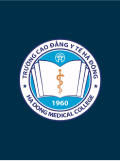Influence of Experience and the Surgical Learning Curve on Long-term Patient Outcomes in Cardiac Surgery

Xem mô tả
0
Xem & Tải
0
Tóm tắt
Mô tả
OBJECTIVE: We hypothesized that increased post-graduate surgical experience correlates with improved operative efficiency and long-term survival in standard cardiac surgery procedures.
METHODS: Utilizing a prospectively collected retrospective database, we identified patients who underwent isolated CABG (n=3726), AVR (n=1626), MV repair (n=731), MVR (n=324), and MVR+AVR (n=184) from 1/2002-6/2012. After adjusting for patient risk and surgeon variability, we evaluated the impact of surgeon experience on cardiopulmonary bypass and cross-clamp times, and long-term survival.
RESULTS: Mean surgeon experience after fellowship graduation was 16.0±11.7 years (1.0-35.2 years). After adjusting for patient risk and surgeon-level fixed effects, learning curve analyses demonstrated improvements in cardiopulmonary bypass and cross-clamp times with increased surgeon experience. There was marginal improvement in the predictability (R2 value) of cardiopulmonary bypass and cross-clamp time for CABG with the addition of surgeon experience, however, all other procedures had marked increases in the R2 following addition of surgeon experience. Cox proportional hazard models revealed that increased surgeon experience was associated with improved long-term survival in AVR (HR=0.85, P<0.0001), MV repair (0.73, p<0.0001), and MVR+AVR (0.95, p=0.006) but not in CABG (HR=0.80, p=0.15), and a trend towards significance in MVR (HR=0.87, p=0.09).
CONCLUSIONS: In cardiac surgery, not including CABG, surgeon experience is an important determinant of operative efficiency and of long-term survival.
Accepted Manuscript
Accepted Manuscript
Năm xuất bản
Tác giả
Burt, Bryan M.
ElBardissi, Andrew W.
Huckman, Robert
Cohn, Lawrence H.
Cevasco, Marisa W.
Rawn, James D.
Aranki, Sary F.
Byrne, John G.
Nhà xuất bản
Elsevier BV